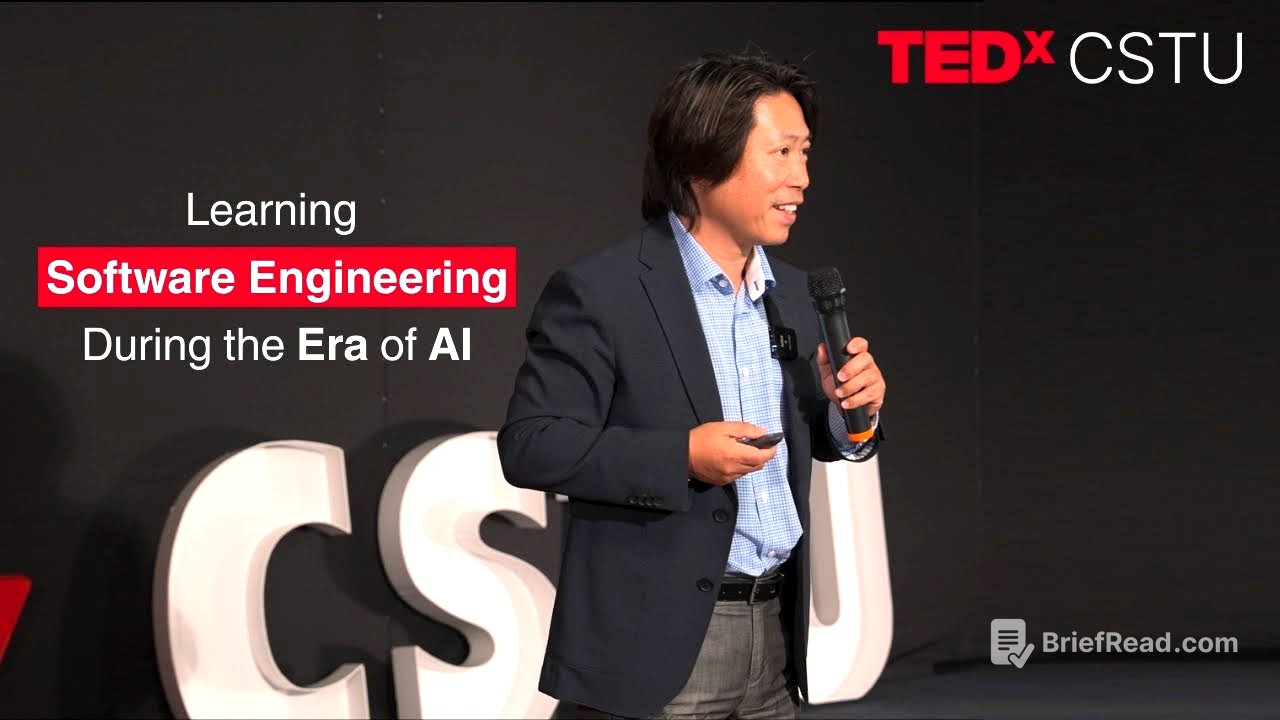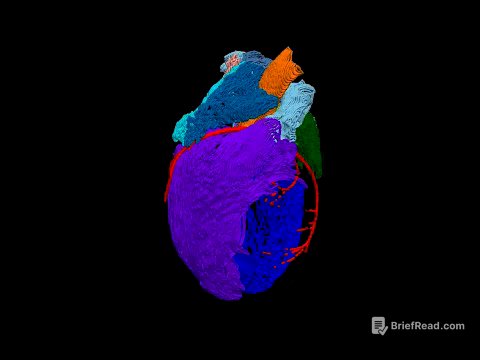TLDR;
The speaker discusses the impact of AI on software engineering, addressing concerns about job security and the evolving role of software engineers. While AI excels at generating code and automating repetitive tasks, it lacks the strategic thinking, contextual understanding, and collaborative skills that human engineers possess. The speaker argues that software engineers are not losing their value but rather evolving into orchestrators, system architects, and ethical technologists who can leverage AI to build better solutions. The talk emphasizes the importance of mastering foundational concepts, developing full-stack expertise, practicing communication and collaboration, and embracing AI as a creative partner in software engineering education.
- AI is good at generating code, translating languages, creating UIs, fixing bugs, and pattern recognition.
- AI has limitations in understanding context, prioritizing long-term goals, and reliability.
- Software engineers are becoming orchestrators, system architects, and ethical technologists.
- Software engineering education should focus on foundations, system design, full-stack expertise, communication, and AI collaboration.
Introduction: The Evolving Landscape of Software Engineering [0:07]
The speaker reflects on a professor's prediction from the early 2000s that every job would become a programming job, noting that while this prediction is coming true, it's happening in an unexpected way due to AI. AI can now write code through natural language prompts, with tools like GitHub C-Pilot and ChatGBT capable of completing code, fixing bugs, and even creating entire projects within seconds. This raises questions about the future of software engineering and whether it's still worth learning in an AI-driven world.
AI's Capabilities and Limitations in Programming [1:44]
AI excels at generating thousands of lines of code, translating between programming languages, creating user interfaces, fixing bugs, and recognizing patterns. For example, ChatGBT can create a dating app like Tinder in Python with user profiles and swiping logic in seconds. However, AI has limitations, as it doesn't understand the "why" behind tasks, requires human input for real-world context, struggles with long-term business goals, and is prone to errors and hallucinations. Statistics show that while 55% of developers use co-pilot, only 30% accept the output without changes, highlighting the need for human oversight.
The Role of Humans in the Age of AI [3:29]
AI is built on large language models trained on human knowledge, providing good results with clear prompts, but strategic thinking remains a human domain. AI can be seen as a brilliant junior developer, capable of efficient task execution, but humans are needed to define the vision, validate results, and ensure ethical considerations. AI also struggles with communication and collaboration, areas where human skills are essential.
The Evolving Roles of Software Engineers [4:40]
Software engineering involves understanding user needs, collaborating across roles, and making empathetic and responsible decisions, not just writing code. The best engineers are those who think deeply and guide machines toward structured and meaningful outcomes. Roles include system architects who design solutions, AI collaborators who implement them, and ethical technologists who ensure solutions benefit humanity. AI democratizes technical tasks, allowing designers and marketers to perform tasks previously requiring specialized engineers.
Software Engineers: Not Losing Advantages, but Evolving [6:08]
Software engineers are not losing their advantages but are becoming more essential. They understand AI better, including its models, data pipelines, limitations, and risks, which is crucial as AI integrates into every product. Software engineers can make better use of AI to build production-ready software that is scalable, reliable, and maintainable in the long term. They also improve AI by fine-tuning models, optimizing performance, and enhancing usability, building the next generation of AI.
The Future of Software Engineering Education [8:33]
Software engineering education should focus on breaking complex problems into steps, logical and critical thinking, and using digital tools to build meaningful solutions. In an AI-driven world, engineers become orchestrators who remove barriers and open doors. Students should master foundational concepts like data structures, algorithms, and programming concepts, think like system architects, develop full-stack expertise across disciplines, practice communication and collaboration, use AI as a creative partner, and stay adaptable by focusing on learning how to learn.
Conclusion: The Future Belongs to Those Who Build It [11:15]
In the future, those who master the craft of software engineering will lead the way, making it the foundation of leadership in the AI era. The term "programmer" may no longer be adequate; software engineers should be visionaries who define meaningful problems, bridge builders who connect tools and teams, and leaders who guide both humans and AI. The future belongs to those who think deeply, adapt quickly, and collaborate efficiently, building the future rather than just predicting it.









